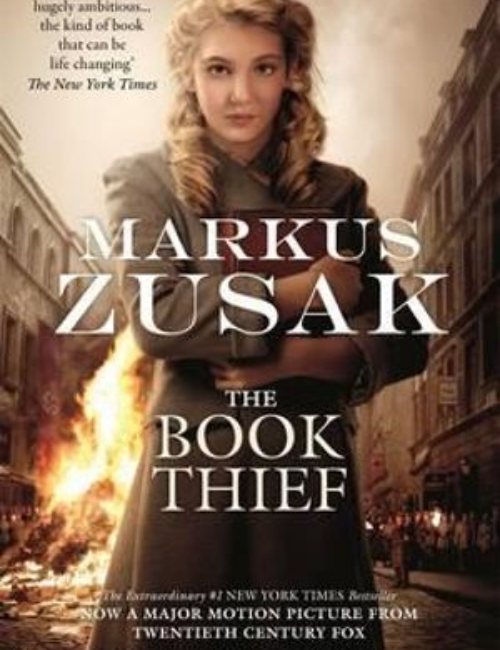I feel I’m reasonably up-to-date with my reading with this book, it’s only ten years old, fairly modern compared with my last book. That was published in 1964. But back to the book. I can see why people made so much fuss about it. I remember it being really big with just about everyone talking about it. It took me a few pages to get into it but once I relaxed and used the narrator to access the book I found the reading quite a bit easier than I expected.
But, let’s start at the beginning. Somehow, with all the hype I managed to miss what this book was about. Totally missed all the spoilers on everything to do with this book. When I picked it up I didn’t bother to read the back at all. I picked it up relying on the hype and the name of the author. Was this a good thing? I think so, it meant I opened it completely without any preconceptions, I took the writing totally on its merits.
I feel I can give as many spoilers as I want, not because The Book Thief has been written about so much but because of the structure of the book. What Zusak does throughout the book is to start a section with spoilers and then proceed to tell us the how and the why of the events. In fact, he starts the entire book with spoilers which give away parts of the end of the book. But I may not bother as that’s not why I’m writing.
Let’s continue to the narrator. Our narrator is rather different to normal, if you’ve read a Terry Pratchett book you’ll be familiar with Death who TALKS LIKE THIS, is fascinated by humans, likes cats and sometimes ‘COULD MURDER A CURRY’ (not literally murder, colloquialisms are interesting. The narrator in this book is similar but different. This book is narrated by Death who is fascinated by people but talks rather more normally. The first few pages are where we are introduced to the concept of Death as a narrator and the concept that Death could have feelings about his/her job and the fact that there is no holiday in this kind of occupation.
Most of the time it’s easy to forget who is narrating. Zusak feels it is important to remind the reader so he does, on many occasions. That’s okay because the subject matter of the book is the Holocaust. It means we get some breathtaking quotes:
There were certainly some rounds to be made that year, from Poland to Russia to Africa and back again. You might argue that I make the rounds no matter what year it is, but sometimes the human race likes to crank things up a little. They increase the production of bodies and their escaping souls.
This was in 1942 when the war was going well in various war rooms but hell on earth for the people doing the actual fighting. The narrator being front and centre is just so appropriate with this topic matter.
Then there is Zusak’s turn of phrase. As you might have guessed, this book is about a thief who steals books. She’s only young and the first one she steals is from the pile of burning books. You know the book burnings by the Nazis. They burned books they considered un-German. These were public book burnings and occurred in 1933. I can’t find the information right now but I’m assuming there were others as the one depicted in The Book Thief was eight or nine years later. Anyway, after stealing her first book from this pile of burning books, Liesel, the book thief, slipped the book inside her uniform of the Hitler Youth Division. It was very hot, probably slightly burning. It was called The Shoulder Shrug and I found this bit to be particularly interesting.
Beneath her shirt, a book was eating her up.
We don’t normally talk about books eating people. In this case it’s because the book was still burning and ‘smoke was rising out of Liesel’s collar’. The flames were starting to eat her just like they’d eaten the books minutes earlier. This is just an example of the types of phrasing you get in this book. They are graphic, metaphorical and sometimes absolutely breathtakingly beautiful. Other times they are so stark because they need to illustrate something that is also stark.
There is something strange and beautiful about a book where the words are so easy to read but the concepts so hard. This book took me seven days to read. At a time when I’ve sometimes spent weeks reading a book I found the words flowed really quickly. Sometimes too quickly and I had to run back to catch some of them again. But the plot and the concepts, in fact, everything else is so challenging. There were times tears forced their way past my dried-up tearducts to roll down my face as witness to what I was reading.
Do I recommend this book? Most definitely. If you’re able to stomach some Nazi horror, if you’re able to read about war, if you’re able to read about German deprivation during war time then please read it. when I mention German deprivation I don’t just mean what the Germans did to the Jews or to many other people but what the Germans suffered due to lack of food and other supplies. In case you haven’t read it here’s an affiliate link for you. If you buy through this link I might be able to afford a coffee.

